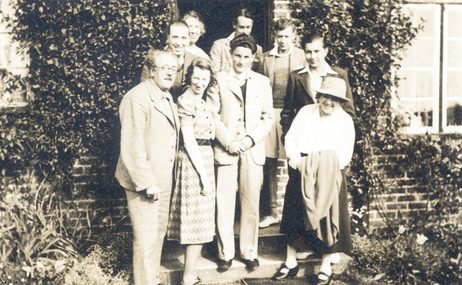Presented by bass Matthew Rose
This week, in time for midsummer, operatic bass Matthew Rose discusses Britten’s 1960 opera A Midsummer Night’s Dream – and in particular the role of Bottom the Weaver, which he has played many times. Britten composed the opera at breakneck speed during the first half of 1960 in time for that year’s Aldeburgh Festival. For once, he did not use a librettist and instead he and Peter Pears took a pencil to their Penguin editions of the play, making a much shortened version that could be converted into an opera (Britten remarked that if they had kept all of Shakespeare’s text the opera would have been as long as Wagner’s Ring Cycle).
The score contains, appropriately enough, some of his most enchanting music. Tim Ashley, reviewing the 2016 Glyndebourne production, wrote that the final chorus was ‘arguably the most beautiful thing Britten wrote’. The opera as a whole showcases the composer’s inventive skill at both orchestration and at shaping character through vocal characteristics. This is particular so with the ‘magical’ characters: the King of the Fairies, Oberon, was cast as a counter-tenor, and his Queen Tytania as a coloratura soprano.
It is one of the many ‘night’ pieces Britten composed in his first few years living at The Red House in Aldeburgh: others include the song-cycle Nocturne, Nocturnal after John Dowland (for guitar) and the piano piece Notturno, or ‘Night Piece’. Ever responsive to his environment, Britten wrote in 1960:
Around Aldeburgh, the weather seems always to be better in the morning; it clouds over about midday and I don’t work then. I cannot work at night. In Suffolk the air is strong, and by nightfall I want to do nothing but sleep.


